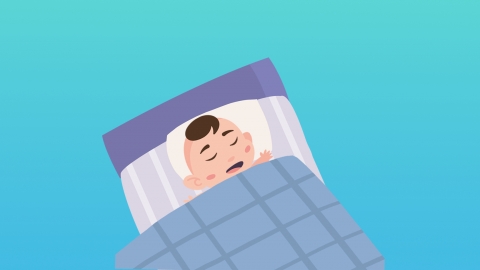What causes a baby's stool to be loose?
Generally, the main causes of loose stools in infants include improper feeding practices, abdominal cold exposure, congenital lactose intolerance, rotaviral enteritis, and bacterial dysentery. If loose stools persist or are accompanied by symptoms of dehydration, it is recommended to seek timely medical attention at a qualified hospital. A detailed explanation is as follows:
1. Improper Feeding Practices
Excessive milk intake or formula that is too dilute can exceed the infant's gastrointestinal digestive capacity, resulting in undigested food being expelled before complete digestion, causing loose stools. Adjust the milk volume accordingly, prepare formula according to the recommended ratio, avoid frequent feedings for breastfeeding mothers, and gently pat the baby's back after each feeding to aid digestion.
2. Abdominal Cold Exposure
An infant's abdominal skin is delicate and sensitive; insufficient warmth can allow cold to stimulate the intestinal smooth muscles, increasing intestinal motility and reducing water absorption, which leads to loose stools. Apply a warm water bag to the abdomen, dress the baby in a belly wrap to protect the abdomen, and change diapers quickly to prevent cold exposure.
3. Congenital Lactose Intolerance
Infants born with a deficiency of lactase cannot break down lactose present in breast milk or formula, leading to increased intestinal osmotic pressure, diarrhea, and loose stools. Consider switching to a lactose-free formula, or administer lactase drops before each feeding for breastfeeding infants. In severe cases, consult a doctor to determine if a long-term lactose-free feeding plan is necessary. No surgical treatment is required.

4. Rotaviral Enteritis
Infection with rotavirus damages the intestinal mucosa and impairs absorption function, resulting in watery stools and vomiting. Under medical guidance, use Oral Rehydration Salts III to prevent dehydration, take Smectite Powder to protect the intestinal mucosa, and use Bifidobacterium Quadruple Live Tablets to regulate intestinal flora. Avoid misuse of antibiotics and maintain a bland liquid diet.
5. Bacterial Dysentery
Infection of the intestines by bacteria such as Shigella causes inflammation, leading to mucus-filled, pus-filled, or bloody stools and fever. Follow medical advice to take Cefixime Granules for infection control, use Saccharomyces boulardii Powder to regulate intestinal flora, and take Oral Rehydration Salts to prevent dehydration. During treatment, ensure proper sterilization of eating utensils to avoid cross-infection.
In daily life, maintain cleanliness and disinfection of the infant's eating utensils, adjust clothing promptly according to temperature changes, and ensure breastfeeding mothers follow a light diet, avoiding spicy and greasy foods. Monitor the infant's stool characteristics, and intervene promptly upon noticing any abnormalities to reduce discomfort.







